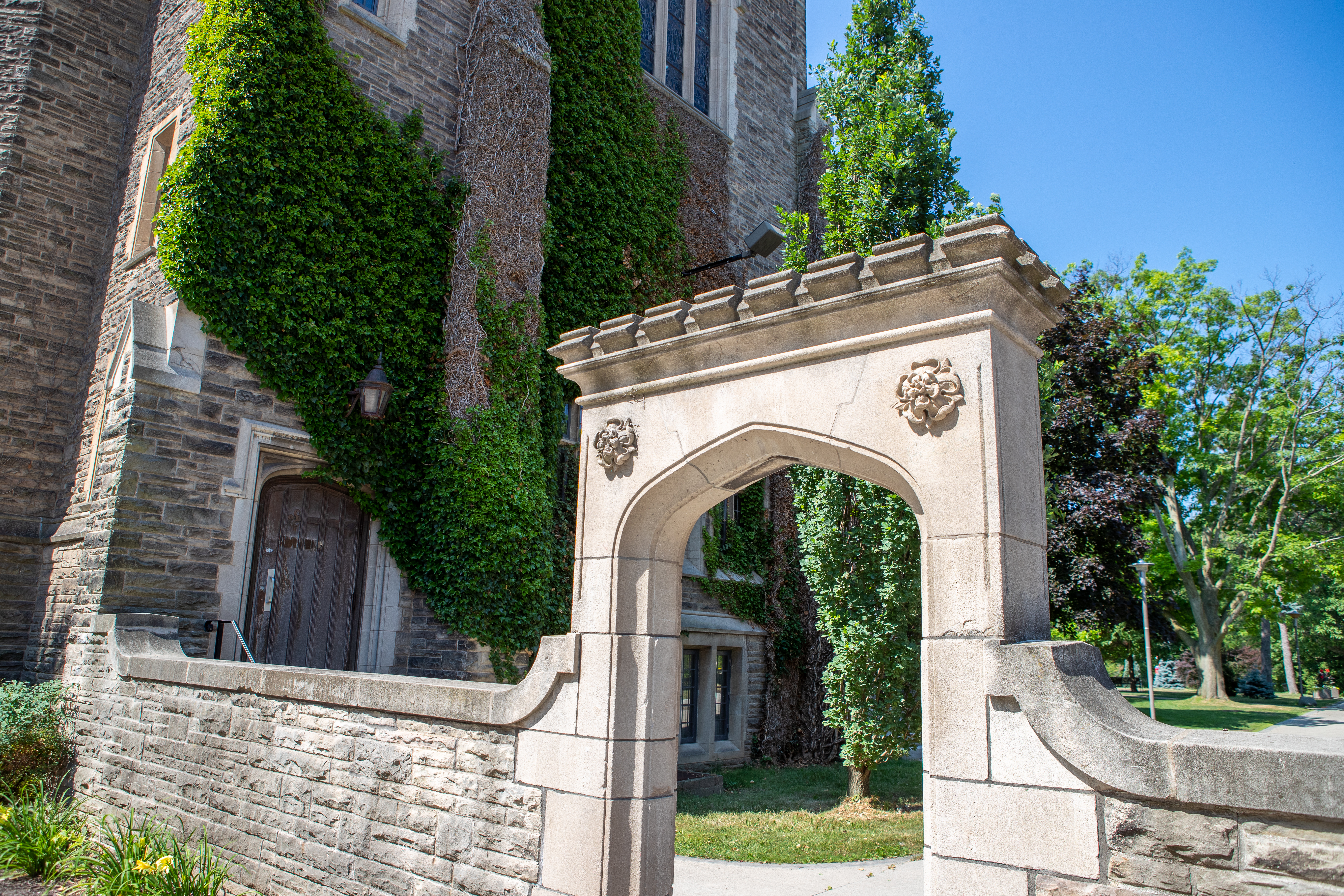Our Story
Imagining an experimental ground for interdisciplinary & experiential teaching & learning
McMaster’s inaugural Intersession term launched in May 2020 as a 4-week academic semester “that provides novel interdisciplinary and experiential learning opportunities that are not available to all students in the typical fall/winter semester”.
Envisioned as a semester that fosters experimentation in both teachers and learners, Intersession was created to reimagine the academic experience in ways that acknowledge the realities facing our current students; these realities include increased levels of stress, persistent financial burdens that often require students to work full-time or part-time during their studies, and various life circumstances that make the traditional cycle of 2 full-time semesters and a 4-month break over spring and summer challenging for many students.
The INSPIRE Office of Flexible Learning was created to both nurture and develop Intersession and to support the growth of flexible learning through micro-credentials, short courses, and other experimental approaches that push the boundaries of teaching and learning.
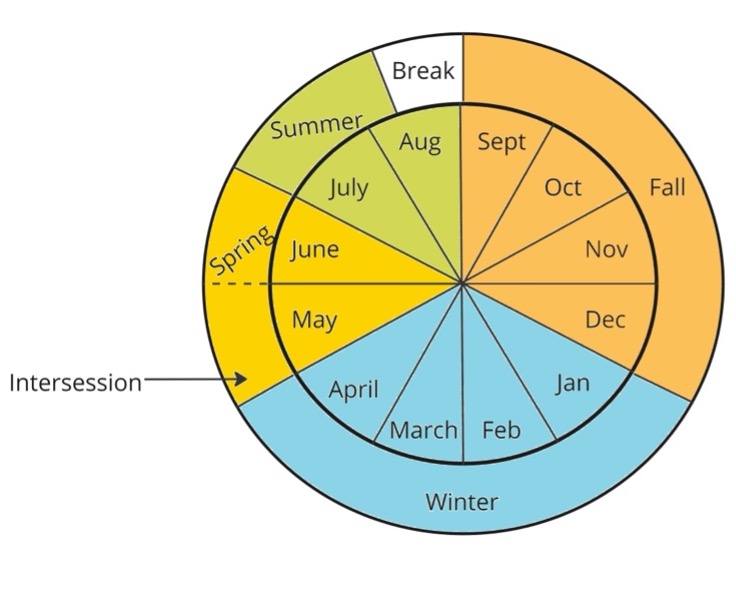
2019 – Envisioning a Flexible Learning Semester
Responding to this reality, a 2019 Intersession proposal was built around 4 key components:
- Curriculum Flexibility: A space for students to explore pathways in their academic journey they may not have had time to consider otherwise.
- Interdisciplinary First Year to Second Year Transition & Exploration: A space for students to meet others beyond their discipline or year & develop tangible skills to apply within disciplinary area of study.
- Pedagogical Experimentation: A space for faculty, staff, postdoctoral fellows, graduate students, and community experts to test flexible learning pedagogies
- Micro-courses & Microcredentials: A space where shorter courses with smaller class sizes could allow students to gain competency-based skills.
“Hamilton is Home… students complete immediately after winter term of their first year that expands their horizons beyond McMaster, building community and civic engagement within the Hamilton community…Our students often report that first year is overwhelming and stressful. Students are getting used to the independence of university life, the increased academic expectations, and the novelty of a new community. McMaster students report that they are told by their peers in upper years that they just need to ‘survive’ first year. There is little time to volunteer, socialize, build community, or engage with students outside of their year and their Faculty. We are not providing students the time and capacity to be engaged citizens in their own community and yet we expect them to be engaged citizens and leaders when they leave. We should be aiming to do better than that.” – 2019 Intersession proposal
2020-2024 – An Experimental Ground of Teaching & Learning
The past 5 years has seen the development of several ideas within the initial Intersession proposal. Launched in May 2020 amidst the early months of the Covid-19 pandemic, some initial aspirations developed as anticipated while other unanticipated developments have also emerged. Highlights include:
- Increasing enrolment: Interest in courses offered during this term is increasing each year
- Partnered Approaches to Teaching & Learning: A suite of INSPIRE courses is now offered during each Intersession semester; many courses are offered in partnership with Faculties or central units. Partnering units include the Student Success Centre, Housing and Conference Services, Centre for Human Rights and Restorative Justice, Equity & Inclusion Office, McMaster Library, McCall MacBain Postdoctoral Fellows Teaching & Leadership, and Michael DeGroote Centre for Medicinal Cannabis Research.
- Interidisciplinary & Experiential Foundations: All INSPIRE course offerings reflect interdisciplinary and experiential courses not available in other departments or Faculties.
- Broad Campus-Wide Interest: Intersession sees learners from levels I – V, from all Faculties and the Arts and Science programme.
- Student & Faculty Insights Inform Programming: Student Curriculum & Faculty Advisory Committees support annual selection of course topics for INSPIRE offerings during Intersession.
- Strong Interest in Online Learning: Intersession is seeing growth and interest in online learning spaces with less student interest in in-person learning at individual course level
- Bridging Co-Curricular and Curricular Experiences: Courses developed in partnership with Athletics & Recreation and the Student Success Centre allow students to gain academic credit for co-curricular student leadership experiences
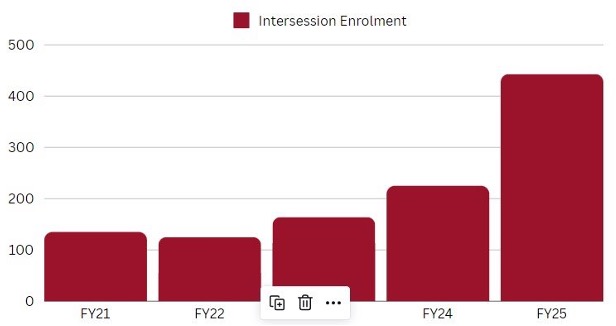
2021 – INSPIRE Office of Flexible Learning is created
In 2021 the INSPIRE Office of Flexible Learning (INSPIRE) was created to support the growth of the Intersession term and the growing interest in further expanding on approaches to flexible learning.
This work now includes offering academic courses under the INSPIRE course code, supporting the development of interdisciplinary learning infrastructure, and supporting the development of micro-credential infrastructure at McMaster.
Our Team
Have any questions regarding the INSPIRE Office of Flexible Learning?
Email us at inspire@mcmaster.ca
Meet the team behind the INSPIRE Office of Flexible Learning
Feel free to contact us if you have any questions!
Our Values
Our values inform all that we do. They remind us of why we’re here, they guide how we work, and they help us to make decisions on what we prioritize.
Information Box Group

Imagination
We inspire creativity and wonder that brings new ideas to life in our teaching, learning, and operations.

Kindness
We foster care, compassion, and integrity in our relationships with ourselves, with others, and with the world around us.

Interdisciplinarity
We design and facilitate spaces, courses, and processes that bring together different disciplinary methods to create unique learning experiences.

Flexibility
We encourage teaching and learning practices that creatively adapt to various scenarios and situations.

Transformation
We create teaching and learning experiences that change how we understand ourselves and our purpose in the world.
Meet Our Instructors!
Information Box Group

Dr. Kim Dej
INSPIRE 1A03
Dr. Kim Dej is the Vice Provost. Teaching and Learning for McMaster University. Dr. Dej has been at McMaster since 2004 and holds a PhD in biology from John Hopkins University. She is a renowned educator having won the President’s Award for Outstanding Contributions to Teaching and Learning, a McMaster Student Teaching Award and the YWCA Women of Distinction Award for Education and Mentorship. Dr. Dej has previously taught in the Life Science programs and has taught courses in Genetics, Cell Biology and Community Engagement. She is passionate about teaching and learning pedagogical research, curriculum development and peer-mentorship.
Currently Dr. Dej leads the INSPIRE Office of Flexible Learning initative.
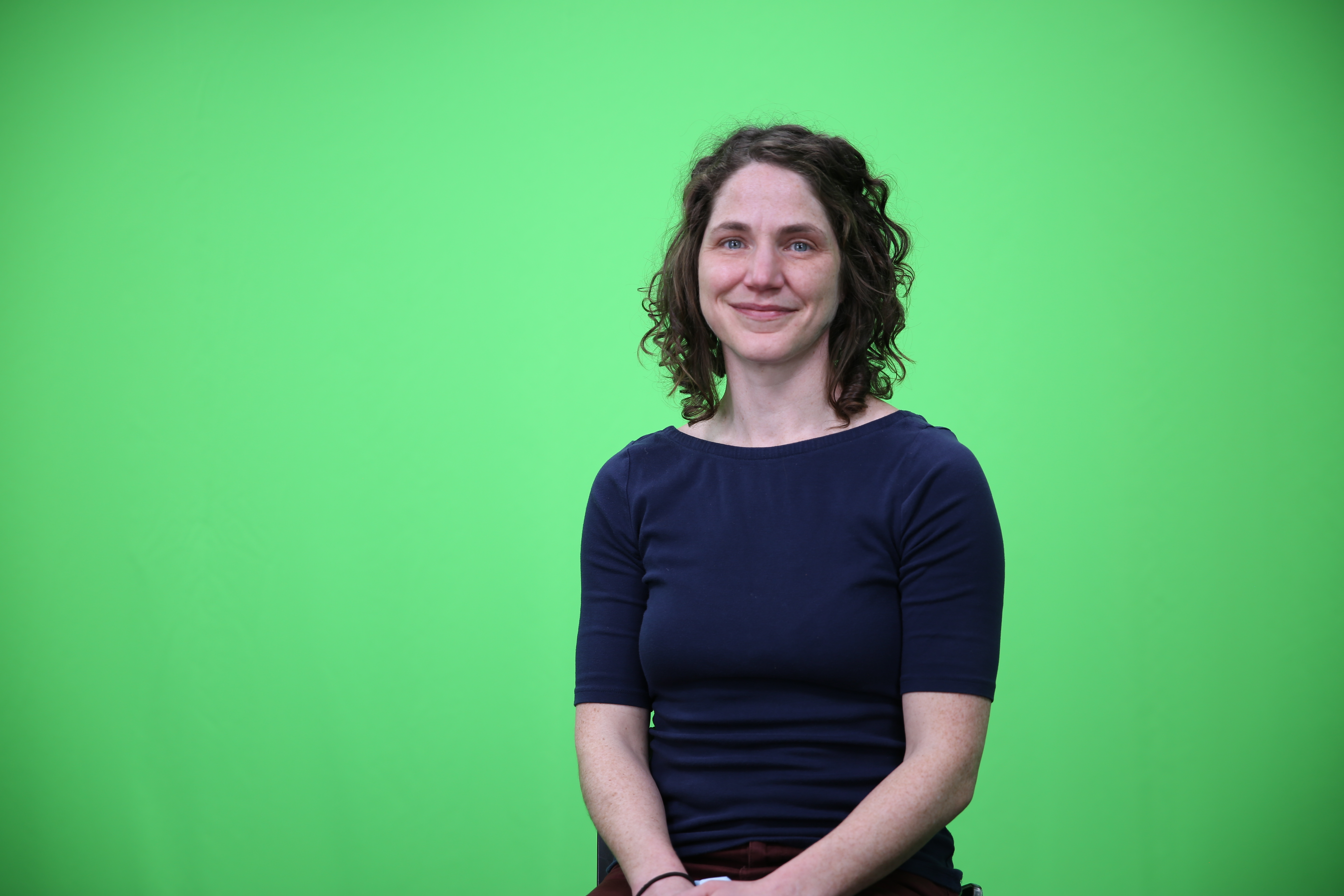
Erin Aspenleider
INSPIRE 3EL3
Erin Aspenlieder is an Associate Director at the MacPherson Institute for Leadership, Innovation and Excellence in Teaching where she leads work in digital pedagogies, curriculum and the scholarship of teaching and learning. She coordinated the institutional task force on generative AI in teaching and learning, designed and led workshops on AI literacies for broad audiences and is contributing to generative AI projects across the institution. She holds a PhD in English and Cultural Studies from McMaster University and writes for literaryvice.ca.

Sean Beaudette
INSPIRE 1PL3
Sean Beaudette (he/him) is the Associate Director, Outreach, Transition and Academic Success with the Student Success Centre (SSC). A passionate educator, Sean works with a team that emphasizes and supports the holistic student experience at McMaster. Sean has completed a thesis-based Master of Education from Queen’s University where he focused on student experience, pedagogy and community engagement. He is also a certified Project Management Professional. Sean lives just outside of Hamilton with his partner and two kiddos, Eva (6) and Laurel (3). He loves canoeing and camping, barbeque and smoking meat, and baseball, and can happily chat at length about any of these things.
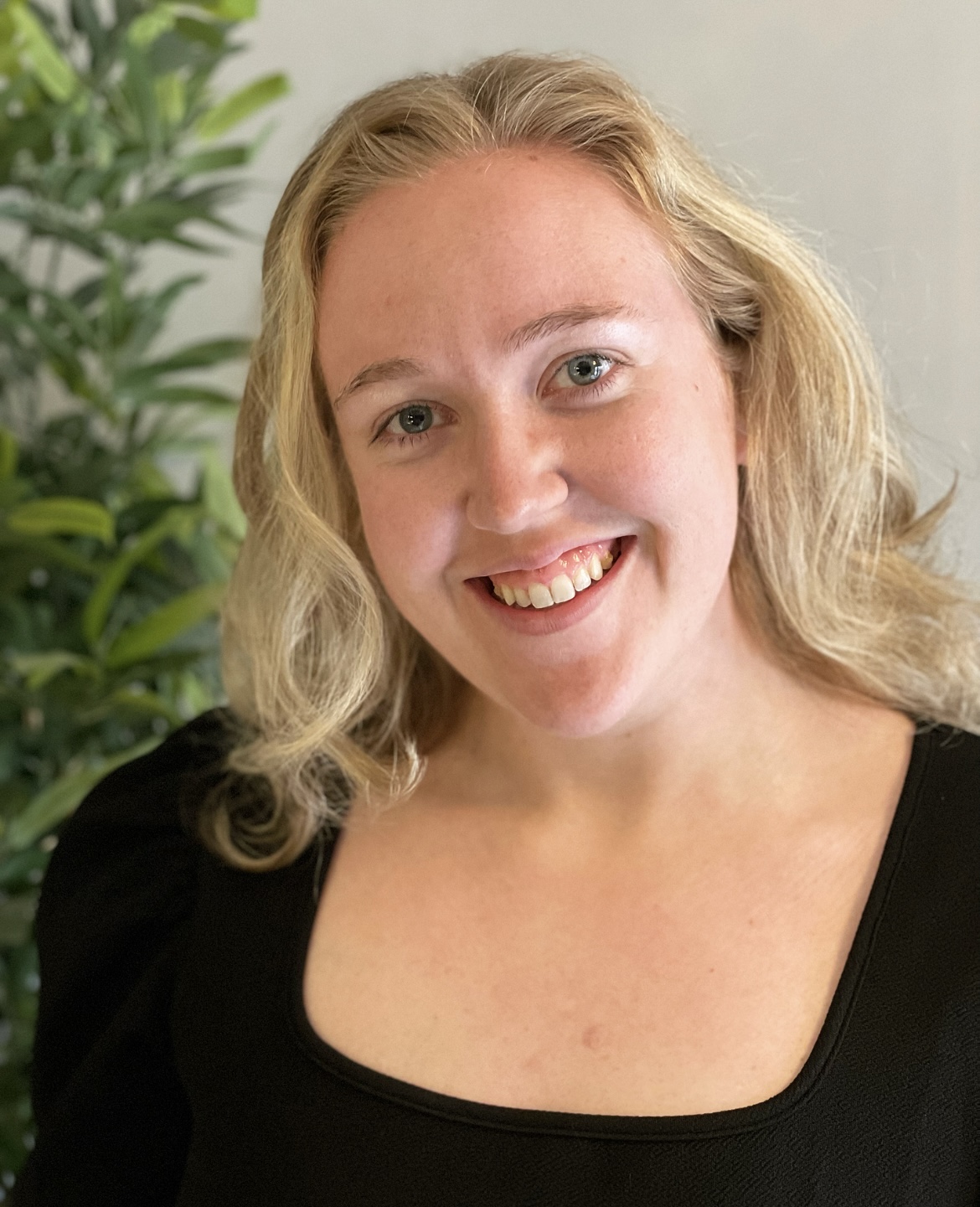
Maddie Brockbank
INSPIRE 3II3 C03
Maddie Brockbank (she/her) is a PhD Candidate and Vanier Scholar in the School of Social Work at McMaster University. Her research is in anti-carceral gender-based violence prevention with men. Additionally, she has research experience in the areas of social systems, andragogy, and equity. Maddie has been recognized as a recipient of the Young Woman of Distinction Award (YWCA Hamilton), a Wilson Leadership Scholar Award (McMaster University), the President’s Award for Excellence in Student Leadership (McMaster University), a Hamilton Hero award (Hamilton Ticats), a Women Who Rock award (EMPOWER), and a Mary Keyes Award for Outstanding Service and Leadership (McMaster University).

Dr. Michael Clemens
INSPIRE 3II3 C02
Dr. Michael Clemens is a historian whose work focuses on the relationship between nature and culture. He holds a PhD from McMaster University, where his research looked at the ways in which non-fiction cinema figures into our understanding of the natural world, and conversely, how filmic representations of nature shape the way people attend to it. Michael balances his time working as an instructional designer and teaching history at McMaster University. In this dual role, he imparts that the stories we tell about the past matter and that they have a direct bearing on our future survival. Driven by a passion for sharing stories of resistance and unconventional accounts about our sense of place, Michael challenges dominant attitudes towards nature.

Maggie Cockburn
INSPIRE 3AR3
Maggie Cockburn (She/ Her) is a Project Coordinator in the Faculty of Science, working on advancing strategic initiatives related to Equity, Diversity and Inclusion. Maggie graduated from McMaster with an Hon. BSc degree in Biology, completed her Bachelor of Education at Brock University and a master’s degree in Professional Education at Western University. She has worked in various roles at the University, in Student Wellness Education and Human Resources Organizational Development, as well as in the Athletics and Recreation Department, in the Pulse Fitness Centre, David Braley Sport Medicine Clinic, as Sport Fitness School Camp Director and most recently as the (interim) Camps and Clubs Coordinator.

Stacy Creech
ABLD 3CD3, LATAM 2A03, 3A03
Stacy A. Creech de Castro is an Afro-Dominican PhD Candidate and Teaching Fellow in the Department of English and Cultural Studies at McMaster University. Specializing in Transatlantic literature in the long eighteenth century and beyond, her current research examines British, Caribbean, and American Gothic literatures and Black Feminist Theory. Stacy is co-founder of the Latin American Network at McMaster University (LANMU), and her background is in medicine, pedagogy, linguistics, English, and Comparative Literature. Areas of research: Caribbean Studies, Latin American & Latinx Studies, Black Diaspora Literature and Theory, Black Feminist Theory, Transatlantic Studies.

Kojo Damptey
ABLD 3BA3
Kojo Damptey is an interdisciplinary scholar-practitioner, musician and decolonial advocate. His work revolves around communication, music, African culture, African politics, International Development and social movements. Born in Ghana, he moved to Hamilton in 2001 to pursue a degree in Chemical Engineering at McMaster University. He is working towards a Master of Arts at McMaster University in Cultural Studies and Critical Theory, studying African Political Thought for the 21st Century and beyond. He has also received an Master of Arts in Interdisciplinary Studies from Royal Roads University.

Katie George
INSPIRE 3MP3
Katie has been working in higher education for over 16 years, teaching everything psychology has to offer. Equipped with a background in psychological concepts and over a decade of experience in the field of brain injury rehabilitation, Katie offers a new lens with which to view education and learning. Currently she is the Program Manager for the McCall MacBain Postdoctoral Fellows Teaching and Leadership Program at McMaster University. A program that has been developed by Dr. Joe Kim to train the next generation of superstar postdocs to teach and lead, both in academia and beyond.

Renata Hall
INSPIRE 3II3 C04
Renata lives all things social justice! With an educational background in Psychology and Biology from Dalhousie University, a Bachelor and a Masters Degree in Social Work from McMaster University, and now a PhD Candidate in the School of Social Work, Renata looks to shake the room through her love of building community connections, challenging the status quo, and amplifying the voices of the margins. Professionally, Renata is a registered social worker and equity has always been at the forefront of her professional pursuits. Currently, Renata is situated at McMaster University as the Manager of Inclusion and Anti-Racism Education Programs within the Equity and Inclusion Office.

Dr. Joe Kim
INSPIRE 3MP3
Joe Kim is an associate professor in the Department of Psychology, Neuroscience and Behaviour at McMaster University, where he has three major roles: Director of the Education and Cognition Lab; Factulty Director of McCall MacBain Postdoctoral Fellows Teaching and Leadership Program; and principla instructor for the innovative McMaster introductory psychology program. A common link across his numerous roles and career is a desire to implement evidence-based practices that promote life-long learning. As an Applied Cognitive Psychologist, He is interested in understanding how the mind works. How do processes like attention and memory help us to make decisions form judements, and build a network of associations that allow us to learn and interact with the world?

Helen Kula
INSPIRE 3EL3
Helen Kula is the Associate University Librarian, Teaching and Learning with the MacMaster University Library. Helen has spent her career in academic libraries in roles that support information literacy and research skill development. Helen represented the Library in the institutional task force on generative AI in teaching and learning and has been involved in a number of initiatives to support students in the use of these tools. Helen holds a MISt and an MA in English Literature.

Dr. Rodrigo Narro Perez
LATAM 2A03
Rodrigo Narro Pérez is an interdisciplinary scholar that has a foundation in earth and environmental sciences. His PhD research looked at using glacial sedimentology and geomorphology to understand glacial hazards and the impacts of climate change in the Peruvian Andes. He is one of the Co-Conveners for McMaster’s Race, Racialization and Racism (R3) Working Group, and is a member of the inaugural Board of Directors for the Hamilton Anti-Racism Resource Centre (HARRC). He focuses his interdisciplinary teaching on anti-racist and decolonial pedagogies where he attempts to combine his scientific training as a geoscientist with his anti-racism community work.

Monica Palkowski
INSPIRE 1PL3 & INSPIRE 3WW3
Monica Palkowski (she/her) is passionate about supporting students as they navigate their personal leadership journeys. As a Living Learning Coordinator with Residence Life, Monica supports student leaders through coaching and mentoring, and through the development and delivery of engaging experiential learning opportunities. Since completing an Honours BA (English) at McMaster, Monica’s own leadership journey has taken her through a variety of fields and experiences, from publishing to health promotion and community engagement.
What We Do
Scroll down to learn more about INSPIRE’s flexible learning programming and the services we provide
Academic Courses
The INSPIRE Office of Flexible Learning is responsible for administration of three academic course pathways available to undergraduate students.
INSPIRE Course Offerings
8 unique, interdisciplinary INSPIRE courses are offered in collaboration with campus and community partners. Courses are uniquely scheduled to allow for curriculum flexibility; involve engaging instructors who teach in novel and innovative ways; and offer interdisciplinary opportunities to work in small groups and with peers across campus.
Africa and Black Diaspora Course Offerings
Africa and Black Diaspora courses (ABLD) provide students with an in-depth understanding of African and African/Black-diaspora peoples and societies around the world. These courses foster critical thinking skills, collaborative work while engaging in Black histories and cultures from interdisciplinary perspectives. They are also featured on the Interdisciplinary Minor in Africa and Black Diaspora Studies.
Latin American and Latinx Studies Course Offerings
Latin American and Latinx Studies (LATAM) introduces students to various perspectives and topics to begin understanding Latin America and its peoples within its totality and complexity. This course of study centers the multivalent experiences of Latin American people in Latin America and Latinx peoples within the context of the diaspora in Canada. These courses are featured on the Interdisciplinary Minor in Latin American and Latinx Studies.
Intersession Learning
The Intersession term is a 4-week semester that runs each May. The vision for Intersession and subsequent launch of the Intersession term in May 2020 provided the spark that led to the creation of the INSPIRE Office of Flexible Learning.
While INSPIRE does not own the Intersession term (it’s open for offerings by all Faculties and the Arts & Science Program), our team continues to champion this new approach to teaching and learning. For example, most of the INSPIRE course offerings take place during Intersession, and our team is busy encouraging colleagues from across McMaster’s campus to explore Intersession as an experimental space for testing new teaching and learning ideas.
Interdisciplinary Learning
The INSPIRE Office of Flexible Learning supports capacity building for interdisciplinary learning at McMaster in a number of ways.
Various exciting and unique courses are available to students in any program, level or faculty. These courses allow students to explore interdisciplinary topics to expand the boundaries of academic pursuits.
McMaster has a number of Interdisciplinary Minor options available for students to complete alongside their undergraduate studies. Since 2021, the INSPIRE Office of Flexible Learning has created space for both shared learning between these programs and to create collaborative approaches to promotion of various minors with undergraduate students at McMaster.
As our team within the INSPIRE Office of Flexible Learning have a great deal of experience with the development of interdisciplinary learning courses and programs, we are available to provide advice and guidance to faculty and staff who are either: a) developing new courses or programs; or b) seeking to test out new concepts in Spring Intersession.
Microcredentials
The INSPIRE Office of Flexible Learning is responsible for providing support and resources to units developing microcredentials. Our team is currently pursuing projects in the following areas in support of a more coordinated approach to this emerging field of flexible learning:
Task Force
Over 2024-25 the INSPIRE Office of Flexible Learning is convening a task force of McMaster colleagues to: a) refine language around what a microcredential is, and what it contains; b) determine platforms for hosting, tracking, and advertising microcredentials; c) implement structures to increase support for enrolment, payment, and credentialling processes; and d) create a recommended workflow for instructors interested in creating new microcredentials
Strategy
Building on an internal and external environmental scan done in Spring 2024, the INSPIRE Office of Flexible Learning will advising on the creation of a Microcredential Strategy aimed at improving how microcredentials are supported at McMaster. We anticipate a strategy to launch sometime in 2025.
Platform
To grow microcredentials at the scale that McMaster envisions will require a consistent campus-wide approach to enrolment, payment, and delivery through an online platform that serves as a hub for learners. Our current priority is to have a pilot platform online for May 2025.
Central Unit Support
With the exception of McMaster Continuing Education, units that are not academic departments or Faculty-based must consult with the INSPIRE Office of Flexible Learning during the development of any microcredentials. Our team is always available to consult with colleagues across the University.
Academic Microcredentials Governance
As the University develops academic microcredentials, the INSPIRE Office of Flexible Learning will support the development of resources that clearly outline requirements and steps required to move new academic microcredentials through McMaster’s curriculum approval processes.
Non-Academic Microcredentials
The INSPIRE Office of Flexible Learning is responsible for maintaining policies and procedures as they relate to non-academic microcredentials. Our team is currently developing resources that clearly outline requirements and steps required to move new non-academic microcredentials through an expedited yet thorough approval process.
Strategic Plan
Over the next 5 years, the INSPIRE Office of Flexible Learning will build upon the foundations set in the first 5 years of our work by striving towards the vision, mission, and strategies outlined in the Office’s inaugural 2024-2029 strategic plan. This plan, and the language encompassed within it, is meant to help frame where INSPIRE aspires to take Spring Intersession in the years ahead and to outline the work that will be required to get there.
OUR VISION
A community of flexible, kind, & imaginative teaching and learning
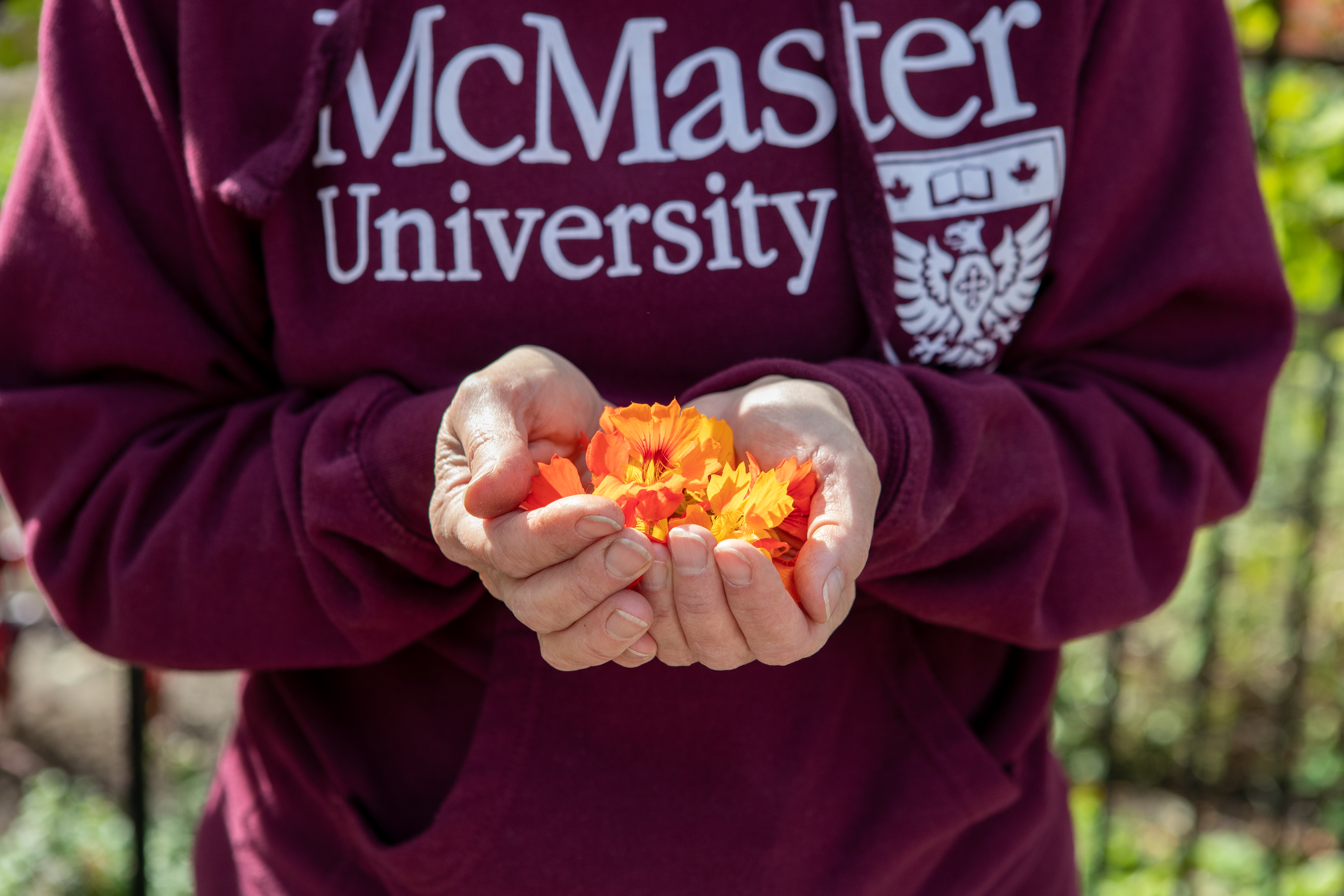
OUR MISSION
The INSPIRE Office of Flexible Learning was established to transform the culture of how we understand post-secondary teaching and learning. By 2029, through the creation of an experimental ground of teaching and learning at McMaster, the INSPIRE Office of Flexible Learning will have cultivated flexibility, wonder, inspiration, and transformation in 10,000 students. In this time, INSPIRE will become an interdisciplinary hub of activity, relationship-building, and experimentation that supports faculty members, staff practitioners, community experts, graduate students, postdoctoral fellows and student partners to advance innovative pedagogies that stretch the boundaries of teaching and learning as we know it. As a result, INSPIRE will facilitate an annual Intersession term that sparks students’ flexible learning pathways via a combination of INSPIRE and Faculty course offerings.
Our Strategies (How we will get there)
The INSPIRE Office of Flexible Learning will advance 5 strategies in pursuit of our mission.
Imagine & Build flexible learning foundations by developing a Spring Intersession learning hub as an experimental ground of flexible learning at McMaster.
Actions we will pursue in support of this strategy include:
- Reduce barriers and create pathways to enable the development of micro-credentials and other short courses
- Create an online information hub that can serve as a central hub of information about Intersession, Spring, and Summer learning opportunities
- Develop a robust Spring Intersession term that provides interdisciplinary, experiential, and community-engaged online and in-person learning opportunities
- Create and communicate various pathways for internal and external learners to participate in Intersession, Spring, and Summer terms
- Develop partnerships with Faculties, central units, and external groups interested in pursuing or supporting flexible learning programming in the Intersession, Spring, and Summer terms
Anticipated Outcomes
- Short-term (2 years): McMaster Intersession, Spring, & Summer terms are promoted in a coordinated manner that enables learners and teachers to pursue flexible learning pathways.
- Medium-term (5 years): McMaster Intersession, Spring, & Summer terms are both seen by McMaster and external learners as dynamic semesters that offer a range of flexible learning options and seen by prospective students as a reason to pursue an education at McMaster.
- Long-term (10 years): McMaster Intersession, Spring, & Summer terms offer a range of learning activities that are recognized as a leader in flexible learning in higher education
Spark Imaginations of instructors and learners by creating spaces to discover, dream, and design pathways, ideas, and possibilities of what academia could look like if done differently.
Actions we will pursue in support of this strategy include:
INSPIRE Infrastructure
- Create a systematic approach to fostering informal ideation spaces with faculty members, staff practitioners, community experts, and students
- Create a cohort of annual INSPIRE Flexible Learning Fellows that includes faculty, staff practitioners, community experts, and student partners
- Work with Service Units to identify possible courses to pilot and staff practitioners to engage with.
- Work with the Office of Community Engagement to identify possible ways to formally partner with community organizations that might be interested in having a staff member teach a course
- Work with the MacPherson Institute to create an INSPIRE fellowship program that might build on existing program offerings or structures
Student Engagement
- Foster a strong student community of INSPIRE champions through the existing student advisory committee, the creation of a student partner fellowship, and the creation of an INSPIRE Flexible Learning Community of students
- Develop an INSPIRE brand that reinforces what we mean by flexibility, seeks to reach all students campus-wide, and provides pathways that students can easily see themselves in.
- Work with the Registrars Office to create a streamlined application process that allows non-McMaster students to easily enroll in INSPIRE course offerings.
- Work with the Student Success Centre to align promotions with the EXPLORE platform and other programming that supports students in navigating their pathway at McMaster
Faculty Engagement
- Invite faculty colleagues to connect and imagine what they might do if they could do teaching differently
- Create a communications plan targeting early- and mid-career faculty members to try their faculty-specific ideas in intersession that also includes a timeline for proposal development, course planning, delivery, and follow up
- Aim to create a faculty idea submission process in the winter before (14-16 months) they might be teaching.
Anticipated Outcomes
- Short-term (2 years): Students, faculty, staff practitioners, and community experts build relationships to populate INSPIRE opportunities and are aware of the ways in which they can become involved with INSPIRE offerings.
- Medium-term (5 years): INSPIRE gains reputation for fostering innovative teaching and learning concepts through intentional, supportive ,and appreciative relationship-building and ideation processes. As a result, increasing numbers of stakeholders engage in INSPIRE processes and opportunities.
- Long-term (10 years): INSPIRE is seen as McMaster’s grand central station of innovative teaching and learning. Rather than needing to actively seek out stakeholders, stakeholders actively reach out to INSPIRE to learn how to get involved.
Pilot & Incubate flexible teaching and learning practices and initiatives that have teaching champion(s), respond to learner-identified needs/priorities, and show early promise for successfully cultivating wonder, inspiration, and transformation in teachers and learners
Actions we will pursue in support of this strategy include:
INSPIRE Infrastructure
- Annually pilot 5 new topic courses that run during spring intersession
- Annually incubate 5 or fewer sophomore courses that run during spring intersession in partnership with an interested Faculty-based champion
- Create a set of common themes annually that are informed by students and/or others that frames a call for applicants to an annual fellowship program.
- Create clear themes or topics of focus (e.g. AI) and flexible teaching practices (e.g. ungrading) that allow for clarity of focus for those who want to pitch ideas
- Create formal and informal spaces that support instructors to build flexible learning capacity
- Develop formal pathways for piloting and incubating that include: a) a set of principles/values to evaluate success against that clearly outline how courses will be evaluated (and by whom); b) how to explore advancing them beyond a pilot phase; and c) a sense of possible timelines.
Student Engagement
- Incorporate student perspectives into process of selecting topics and themes through the student advisory committee
- Develop a cyclical student enrolment process that is easy to navigate and clearly frames the many benefits of INSPIRE courses and intersession for students.
Faculty Engagement
- Create pathways for Faculty-based courses to be piloted during Intersession in parallel to the INSPIRE suite of courses
- Track Faculty-based course offering pilots as possible examples to share when encouraging more faculty members to use the intersession and spring/summer sessions as space to test new teaching and learning ideas
Anticipated Outcomes
- Short-term (2 years): Promising ideas that respond to identified themes and topics of focus are given an opportunity to be delivered in a low-risk intersession environment. Early adopters are supported in advancing concepts with home Faculties, units, or organizations.
- Medium-term (5 years): Successful pilots are either: a) incubated within INSPIRE over multiple years and evaluated for their long-term potential; b) supported by their home Faculty beyond the pilot. Early adopters are looked to as champions in this work, encouraging others to get involved.
- Long-term (10 years): INSPIRE cyclical model of piloting and incubating seen as a go-to system for low-risk experimentation and innovation that both tests the efficacy of promising programs and supports identification of pathways towards normalization at McMaster.
Sustain and Normalize flexible teaching and learning courses, programs, and pathways that successfully cultivate wonder, inspiration, and transformation in teachers and learners
Actions we will pursue in support of this strategy include:
INSPIRE Infrastructure
- Create a concurrent certificate that encourages students to deeply engage with flexible learning through an INSPIRE suite of offerings that sees students enrol in Intersession annually throughout their time at McMaster.
- Develop an INSPIRE suite of flagship courses that are offered consistently and collectively form a sustainable program foundation of Flexible Learning offerings that can provide financial stability and allow emergent ideas to be tested in a low-risk environment
Student Engagement
- Promote flexible learning pathways that encourage students to see themselves as flexible learners who spread out their course load, finish a semester early, or gain knowledge in a discipline far different from their major
Faculty Engagement
- Actively share INSPIRE’s mission, activities, and learning throughout the University to shift campus culture towards being more open to normalizing innovative teaching and learning approaches.
- Create a set of case studies that can capture how McMaster has adopted flexible teaching and learning practices more recently in order to help facilitate pathways to change
- Develop clear outlines of the pathways and processes for Faculty-based courses to follow when seeking to have a course piloted during Intersession approved as a long-term offering within a specific program
- Work with Associate Deans to develop new policies or processes that can support the normalization of innovative teaching and learning approaches piloted by the INSPIRE Office of Flexible Learning (e.g. structures that allow faculty members to teach year-round, buyouts for spring course load)
- Create necessary teaching overload buyout mechanisms, vetting process, and a pathway that can allow faculty members to teach.
Anticipated Outcomes
- Short-term (2 years): A combination of INSPIRE and Faculty-based programming operate throughout the Intersession, Spring, and Summer terms.
- Medium-term (5 years): INSPIRE operates a suite of programming that collectively assures operational sustainability while supporting Faculties in advancing their priorities.
- Long-term (10 years): INSPIRE seen as a credible space that is responsible for both delivering and introducing students to flexible academic programs that benefit Faculty and University-wide priorities. Outcomes of INSPIRE-supported initiatives and innovations are adopted into the day-to-day practices of the University.
Evaluate & Mobilize knowledge about flexible teaching and learning practices
Actions we will pursue in support of this strategy include:
- Partner with the MacPherson Institute to develop a model that can support evaluation and mobilization and build upon the in-house expertise that MI has related to the Scholarship of Teaching and Learning.
- Proactively share findings with McMaster decision-makers to share lessons learned and inspire consideration of how different practices that have found success within INSPIRE could be scaled and expanded across areas of the University.
- Partner with the Registrar’s Office and Institutional Research and Analysis to determine how best to utilize data available and how this data can inform evaluation and knowledge mobilization.
- Point faculty members who teach in Intersession towards resources offered by the MacPherson Institute should they be interested in any of the evaluation, mobilization, or course design programming available.
- Actively participate in local, regional, national, and global teaching and learning conferences and gatherings to share INSPIRE learnings and outcomes
Anticipated Outcomes
- Short-term (2 years): A cyclical model of research and evaluation helps to identify practices for adoption and knowledge sharing.
- Medium-term (5 years): INSPIRE begins to emerge as a thriving research hub with data that can help inform updates to teaching and learning practices, support faculty on their career pathway, and share learnings with others.
- Long-term (10 years): INSPIRE research institute established as an in-house engine to support innovative teaching and learning practices.
Definitions
The following definitions expand on language used within the mission of our strategic plan:
- Flexible Learning: Cultivating wonder, inspiration, and transformation by encouraging learners to learn: at their own pace (when they learn); in different places (where they learn); with/from different people (who they learn with/from); along new pathways (what they learn); via innovative pedagogies (how they learn); and in ways that reflect on their purpose during and beyond their learning journey at McMaster (why they learn)
- Flexible Teaching: Cultivating wonder, inspiration, and transformation by encouraging teachers to teach: at a different pace (when they teach); in different places (where they teach); different people (who they teach); along new pathways (what they teach); by experimenting with innovative pedagogies (how they teach); and in ways that reflect on their purpose during and beyond their teaching journey at McMaster (why they teach)
- Experimental ground of teaching and learning: Space to test ideas in a low-risk environment.
- Wonder: Experiencing curiosity, fascination, and surprise in the learning process.
- Inspiration: Feeling motivated to make a difference in oneself, in others, and in the world at large
- Transformation: Leaving a learning experience a different person than when one started.
- Interdisciplinary Hub of Activity: Space that proactively connects teachers and learners from a wide range of disciplinary areas of thought, life experience, and perspectives.
- Staff Practitioner: A McMaster staff member who brings their field of expertise into the classroom environment through sessional teaching opportunities.
- Student Partner: A McMaster student who brings their student experience as an INSPIRE student into curriculum planning and co-creation processes
- Innovative Pedagogies that Stretch the boundaries: Approaches to teaching and learning that are changing the culture of how we understand teaching and learning in the context of post-secondary education.

